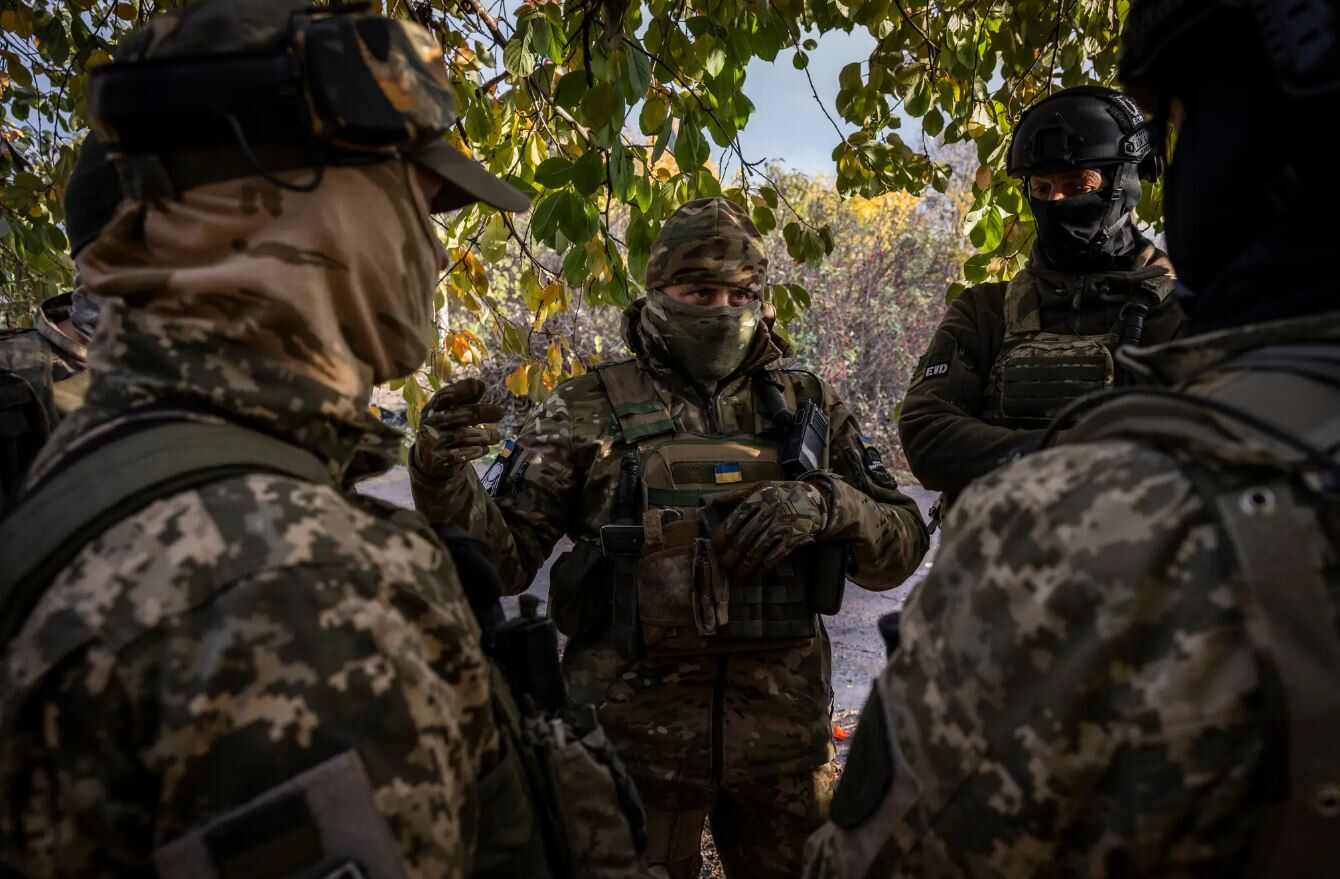In a shaky smartphone video shot from the window of a bus, the Russian checkpoint in the beleaguered Kherson area of Ukraine seems to be deserted. Someone in the background yells “Empty” as people begin to clap.
Was this an indication that Russia is withdrawing from the region, or was it a deception to lead Ukrainian troops into a trap?
It is unknown who filmed the footage that went viral on social media and why. But its emergence adds to other dubious occurrences in and around the vital city of Kherson: Russia’s tricolour flags vanished from administrative buildings on the same day, and a Russian general hinted indirectly on national television that the military could need to depart the city.
Artillery bombardments, airstrikes, and infantry assaults are being used in Russia’s conflict against Ukraine. It is also a fight of feints, parries, and constant attempts to build traps, fought by generals who transmit signals meant to confound and deceive their opponents.
This is precisely what Ukrainian authorities say they are seeing in and around Kherson, where a rush of contradictory communications has obscured the image of the fighting in the south, where one of the most crucial engagements of the conflict is imminent. The prize is the southern city of Kherson, the only provincial capital conquered by Russia during its February invasion.
In addition, the Ukrainians have engaged in their own deceptive propaganda.
Tor Bukkvoll, a senior research fellow at the Norwegian Defense Research Establishment, a military think tank, and an expert on Russia’s special forces, said, “Trickery is as ancient as battle.” According to him, all forces utilise deception, but the Russians have placed a specific focus on it in their military philosophy.
In and around Kherson, on the western bank of the wide Dnieper River, Russia is losing ground. Using precise rockets supplied by the West, the Ukrainian military has mostly destroyed the river bridges, clearing the ground for a likely retreat of the remaining forces on the west side. In the confusion of signals, though, Ukrainian commanders and military experts saw indications of a Russian psychological warfare effort.
Since a month ago, the Russian military and civilian leadership have signalled their intention to withdraw from Kherson. They have withdrawn military equipment, ordered civilians to leave the area, and removed items deemed culturally significant to Russians, such as the remains of Prince Grigory Potemkin, a Russian noble and Catherine the Great’s lover who advocated for the incorporation of this region into the empire.
The Ukrainian military has made public what it claims are its next steps: moving soldiers to within artillery range of the Russian pontoon bridges across the Dnipro and bombarding them around-the-clock in order to disrupt supply lines more completely prior to daring a land assault. That signals a protracted conflict, not an instant attack.
Or does it?
It would be difficult to find answers in the contradictory public pronouncements of opposing commanders and authorities, none of which appear appropriate for those attempting to bolster troops’ morale and lead them into combat.
On the Russian side, General Sergei Surovikin has projected a gloomy outlook, stating last month, “the situation in Kherson is tight, and we do not rule out taking severe measures.” And Kirill Stremousov, the deputy head of the Russian occupation authority in Cherniv, said categorically about the Russian army, “most likely, our soldiers would withdraw to the eastern bank of the Cherniv area.”
Director of the Ukrainian military intelligence service, Kyrylo Budanov, emphasised the strength of the opponent. According to him, the Russians are “creating the idea that all is gone.” In fact, they are deploying fresh military forces and prepping the streets of the city for defence.
According to Ihor, a local resident who could be contacted by phone, Russian armoured personnel vehicles with groups of troops with guns on the rooftops are roaming these streets. He added, requesting that his full name not be published for security concerns, that troops were robbing electrical shops and residential residences of their equipment.
Regardless of the Russians’ objectives, he said that order is deteriorating. “Everything is really difficult and stressful,” he remarked. It is terrifying.
